Fifteen-Minutes-of-Fame
Lisa Bost-Sandberg
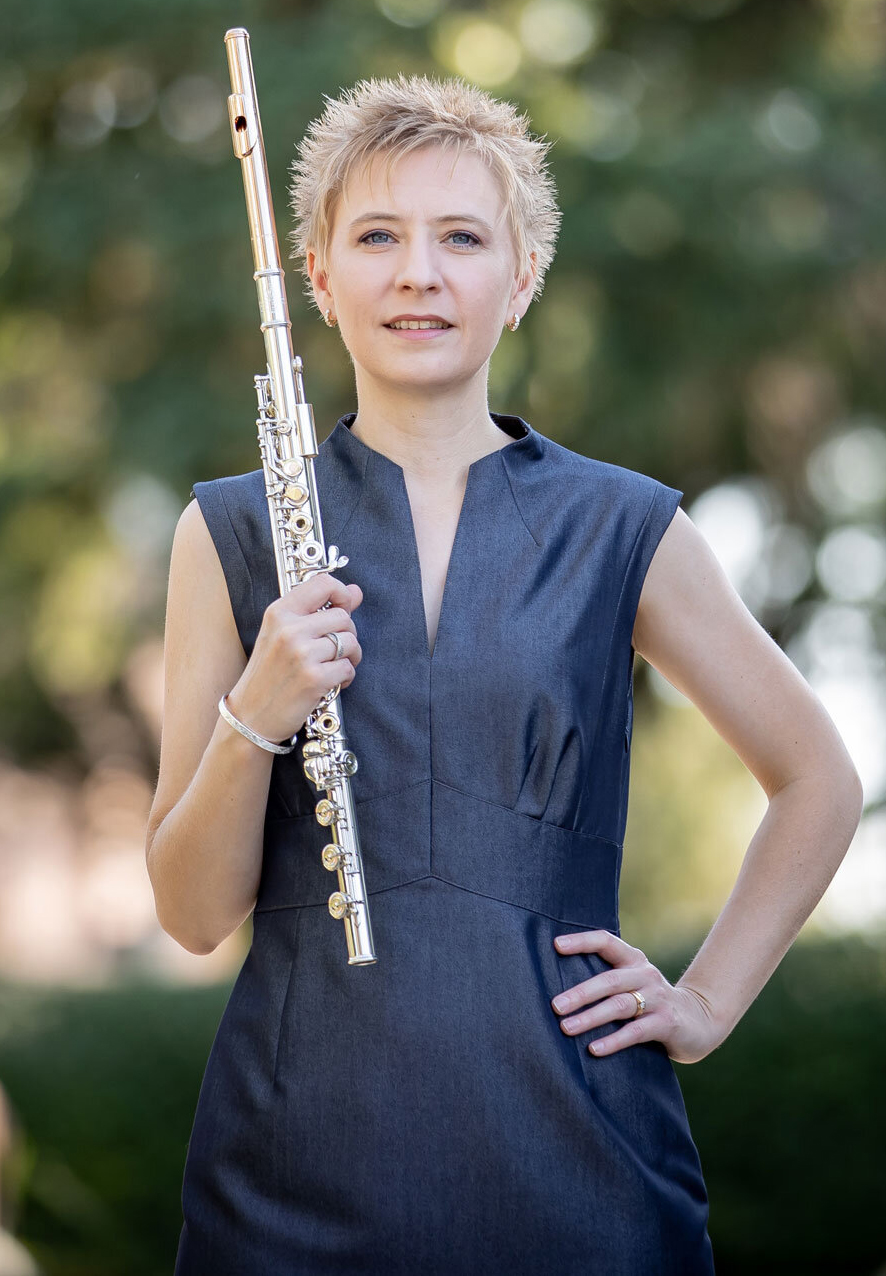
A distinctive and eloquent voice in the music of today, Lisa Bost-Sandberg is described by renowned musician Robert Dick as “…one of the important composer-performers of her generation…[her] interpretations are infused with deep musicality, questing intelligence and a joyous spirit.” Deeply committed to contemporary music as well as its rich roots in the classical repertoire, Bost-Sandberg is known as an engaging flutist/composer/improviser, a dynamic presenter of workshops and lectures, and an impactful teacher.
In demand as a soloist and chamber musician, she has toured internationally, performing her own music and that of others at new music festivals (SEAMUS, EMM, Pixilerations, Spark, and SCI), National Flute Association conventions, International Low Flutes Festivals, and guest appearances at dozens of universities. Recent engagements include performing as a featured flutist-composer on the New York Flute Club’s “Solo Flute Spectacular” concert and serving as the guest artist for the Utah Flute Festival and the Seattle Flute Society Horsfall Competition. She is the bass flutist for the virtual film premiere of Julia Wolfe’s Oxygen for 12 flutes, presented by Carnegie Hall, and she has recorded on the Albany, Cantaloupe, GIA, and North Texas Jazz labels.
Many of her appearances involve her career as a performer-composer and contemporary music specialist, including presentations such as “In Pursuit: Creating Your Path in the Arts,” “From Performer to Composer,” and “Tackling a Contemporary Composition.” She has a long-standing duo collaboration with pianist Éva Polgár. Their programming is focused on adventurous and stunning 20th- and 21st-century repertoire from around the world, from important historical works such as Boulez’s extraordinary Sonatine to new works written for them such as Asha Srinivasan’s Utthishta. Her solo and chamber projects often span the eras, featuring traditional repertoire alongside her pieces and other recent compositions. She has appeared as a concerto soloist on several occasions and currently performs as principal flute of the Greater Grand Forks Symphony Orchestra.
Bost-Sandberg’s compositions have been performed at major conferences and festivals across the United States and abroad, including the College Music Society, Society of Composers, American Trombone Workshop, World Saxophone Congress, North American Saxophone Alliance, National Flute Association, International Low Flutes Festival, and the Music by Women Festival. Recent projects include Heron for solo bass clarinet, commissioned by Jeremy Wohletz, and Dovetail for solo piano, written for the North Dakota Music Teachers Association as she was honored to be selected as their 2023 Commissioned Composer. Chroma, a multimedia collaboration with artist and commissioner Marjorie Schlossman, is the subject of a short film by Mary Trunk and Caren McCaleb. Bost-Sandberg’s works have been recognized as prize-winners and finalists in composition competitions of the National Flute Association, the Flute New Music Consortium, and the American Trombone Workshop.
Committed to her musical community, she serves on the Schmitt Music Flute Gallery Advisory Board and is a Voting Member of the International Music Camp Corporation. She has served the National Flute Association in several capacities, most recently as the organization’s Secretary and as a member of various committees. She has also served a term on the Board of Directors and previously chaired the New Music Advisory Committee, which provided a unique opportunity to forward the commissioning projects and new music initiatives of a major organization with an impressive and deep commissioning history.
Bost-Sandberg has taught masterclasses, given presentations, and led workshops at numerous institutions and festivals. She is the Teaching Assistant Professor of flute and music entrepreneurship at the University of North Dakota, teaches at the International Music Camp, and coaches for the Northern Valley Youth Symphony. A Montana native, she received her Doctor of Musical Arts degree in flute performance with a related field in composition from the University of North Texas as a recipient of the prestigious Masters and Doctoral Fellowship. She is also a graduate of New York University (Master of Arts) and The University of Iowa (Bachelor of Music). www.lisabost.com
Concert Dates
- Electronic Music Mdwest Festival 2025 - Kansas City Kansas Community College
April 4th 8:00 PM CDT (UTC-6)
15 one-minute selections for Lisa Bost-Sandberg
-
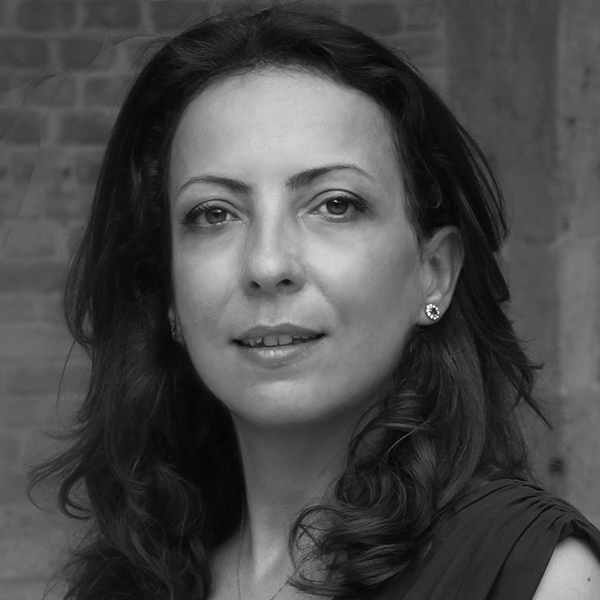
Emerald
Daria Baiocchi
Emerald is a short musical piece that derives its power from being distilled to only the essential. It’s this simplicity that draws listeners just as a small gem demands close attention to appreciate its hidden beauty.
Daria achieved and MA in piano, in classical composition and in electronic music. She also owns a degree in “Classical Literature”from the University of Bologna. Her compositions have been played in theaters and concert halls throughout the World and broadcast by several Radio stations (Holland National radio, France,Portugal, UK, USA etc). She has been first prize in Lithuania Biennal, in Bulgaria Computer Space Music, Philadelphia Arthouse Film Festival etc.. She’s actually main Professor of Harmony and Music Analysis in Fermo Conservatory of Music and Sound Design Professor in Macerata Academy of Fine Arts and in QuFu Normal University (China).
-
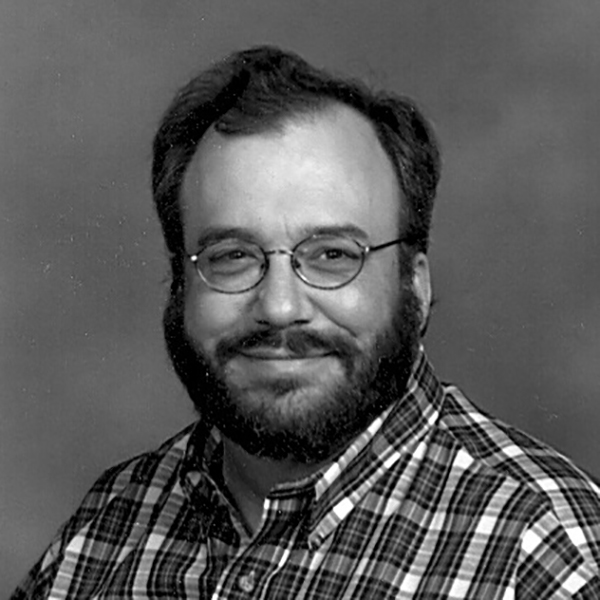
Moment
David Bohn
One is a series of short works for instrument and tape, all utilizing the same fixed media file. This work is dedicated to Lisa Bost-Sandberg.
David Bohn received degrees in composition from the University of Wisconsin, University of Wisconsin-Milwaukee, and the University of Illinois. He currently resides in West Allis, Wisconsin, and is the music coordinator at Peace Methodist Church in Brookfield. He is the President of the Wisconsin Alliance for Composers.
-
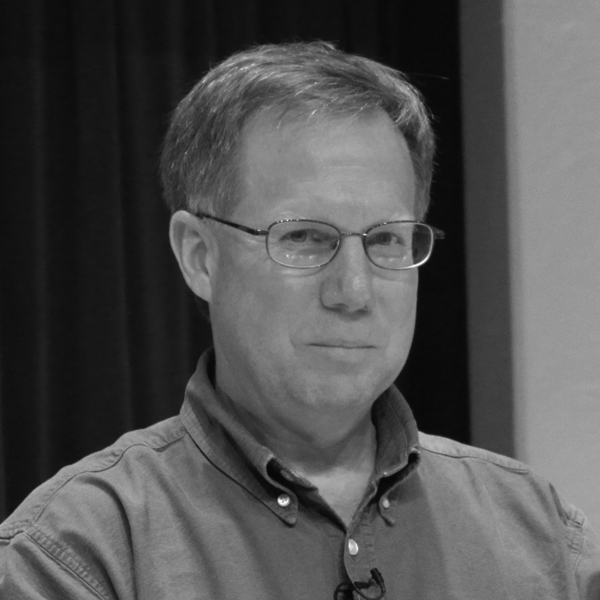
Texturologie 23: Aspen
James Caldwell
Texutorolgie 23: Aspen (2024) was composed in response to a call for sixty-second pieces to be played by Lisa Bost-Sandberg for her Fifteen Minutes of Fame, and is dedicated to her. The tape music was made with some of the tools I’ve developed over the years for my Texturolgie pieces. The aspen is, perhaps, the prototypical reference in the idiom “shake like a leaf.”
James Caldwell retired in May 2018 after a 33-year career at Western Illinois University. At WIU he was co-director of the annual New Music Festival, curator of his own ElectroAcoustic Music Macomb series, recipient of the inaugural Provost’s Award for Excellence in Teaching in 2005, the 2009 Distinguished Faculty Lecturer, president of the WIU chapter of UPI Local 4100, representing about 600 faculty and academic support professionals, and other things. He earned a BA in Art from WIU in 2014. His 2021 album of concrete miniatures, Pocket Music, was released on the Neuma label. www.jamesmcaldwell.com
-
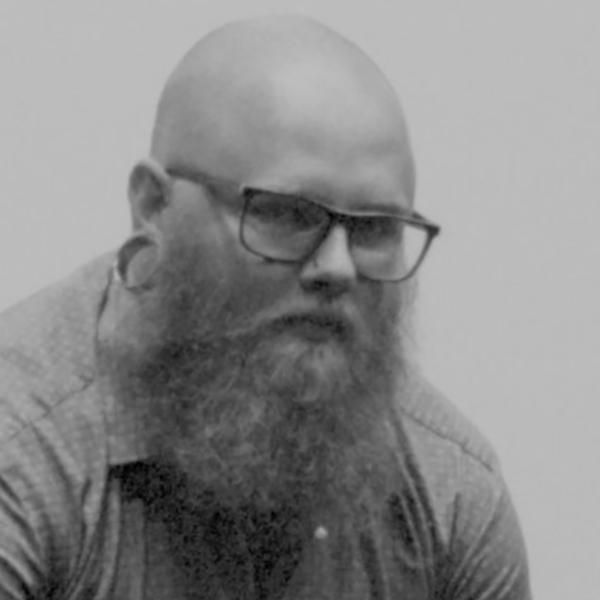
sad soul
Benjamin Damann
Benjamin Damann is a composer, percussionist, and music technologist. His works — inspired by probability, indeterminacy, improvisation, and the timbral manipulation of acoustic instruments through physical preparation and electroacoustic augmentation — have been performed throughout the United States and Europe. He is devoted to realizing electronic, experimental, and graphical works for percussion as well as programming software to aid in the performance of such works. Benjamin holds a BM in percussion performance with a concentration in composition from Eastern Illinois University, an MM in Composition from Bowling Green State University, and is currently pursuing his PhD from the University of North Texas.
-
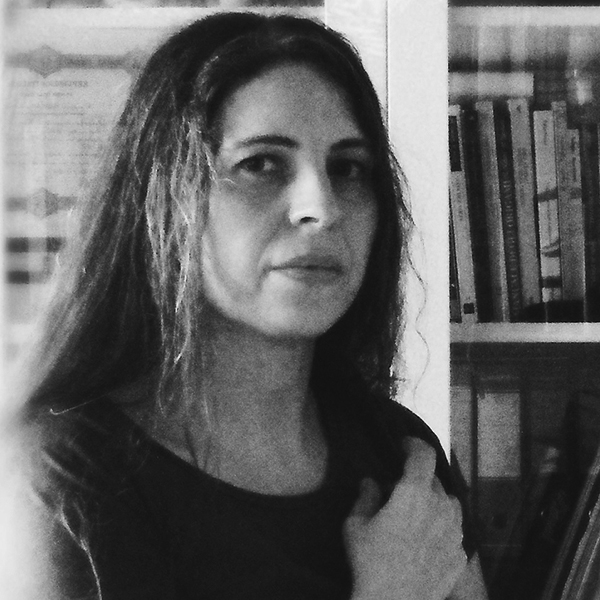
Rumenta
Carlotta Ferrari
Rumenta (Waste in Italian sailors' jargon) is a piece for flute and fixed electronics. The electronics section represents human life while the flute, based on circular breathing, represents the steadiness of nature, its neverending calm, its cycles that are always renovating but now are being threatened by humans. Rumenta is a meaningless and chaotic human experience: the starting point for a new mentality where a circular use of resources is worth wishing for, and waste gets new life and meaning.
Carlotta Ferrari (b. 1975) is an Italian composer and independent researcher. She served as chair of music composition at Hebei Normal University in Shijiazhuang (China) and at the Department of Music of ESE, Firenze. Her music is regularly performed around the world, and her research interest lies in the contamination of past and present. In 2018, Harvard University commissioned her a carol for the annual Christmas Carol Service. In 2020, a paper on her symphonic poem for organ 'Edith Stein' as a modern example of the genre appeared in the Scientific Herald of Tchaikovsky National Music Academy of Ukraine. Carlotta Ferrari has won several awards, i.e. the 2nd award at the 2018 edition of Opus Ignotum Competition, supported by the Ministry of Culture of the Czech Republic, and the shared 1st award at ISCM-Musika Bulegoa Choral Composition Competition (Spain). Ferrari’s music appears on several CD recordings, such as the monographic 'Women of History: Music for Organ by Carlotta Ferrari' (Divine Arts Recordings 2018). Active as an electroacoustic composer as well, Carlotta Ferrari has taken part in festivals such as Vu Symposium (USA 2017), Diffrazioni Multimedia Festival (Italy 2019), Tehran International Electronic Music Festival (Iran 2021).
-
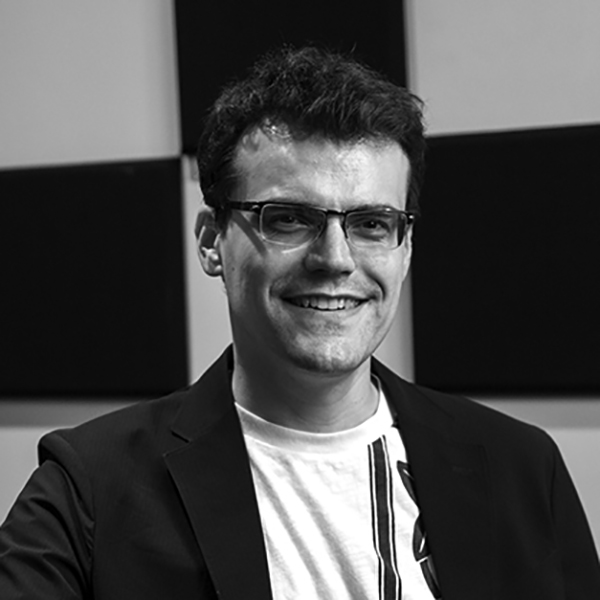
Planned Obsolescence No. 7
Simon Hutchinson
The term "planned obsolescence" refers to the practice of intentionally engineering an artificially limited lifespan into products in order to create the need for repeat purchases or upgrades. With art and music in the digital age, a side product of constant upgrades is that many works may become irreproducible as the technology needed to perform or view these works disappears, leading to an obsolescence not just of a technological object, but of the art itself. This impermanence, too, perhaps makes our engagement with works of our time even more valuable.
Simon Hutchinson is a composer and interdisciplinary artist who uses technology as both a creative medium and a thematic focus. His work emphasizes the human dimensions of technology, challenging contemporary technoculture and advocating for a thoughtful approach to our digital age. Simon's works draw inspiration from diverse sources, weaving together European concert traditions, creative electronics, and a range of global influences. The result is in a body of work that explores the variety of interplay between humanity, technology, and society.
-
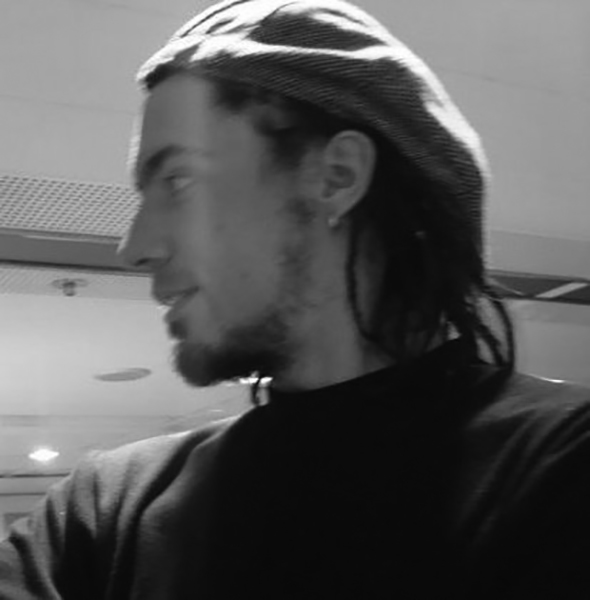
Carpathian Mannerism
Aurés Moussong
Carpathian Mannerism is a composition that explores the intersection of traditional and modern, drawing inspiration from the Carpathian region’s rich cultural heritage and the evocative qualities of its landscapes. In the music, the flute serves as both a solo voice and a point of interaction with the electronics. The electronics, which are integrated with live performance, augment the acoustic sounds, offering layers of texture. The electronic elements sometimes mirror the flute, while at other times, they diverge, creating contrasts that highlight the performer's ability to shape the acoustic space.
Aurés Moussong studied Music Composition at the Escuela Superior de Música in Mexico City. In 2022, he earned his Master’s degree from the Liszt Academy of Music in Budapest and the Universität der Künste in Berlin through the Erasmus program. He recently completed a two-year postgraduate specialization in composition with Daniel D’Adamo at the Conservatoire de Strasbourg. Moussong’s notable achievements include winning the First Prize at the Ibermúsicas 2021 Composition and World Premiere Competition for Desde el lugar del misterio, premiered in Porto, Portugal. He also won the Second Prize at the CHINA-CEEC composition competition in Hangzhou, China, and the First Prize at the Egidio Carella Composition Competition in Italy. In 2023, he won the First Prize at the Hungarian Composers Association and WoCe competition and was invited to compose Dialogue à quatre, which premiered at the Musica Festival in Strasbourg. Currently, he is pursuing a Certificate of Advanced Studies at the Hochschule Luzern – Musik in Switzerland.
-
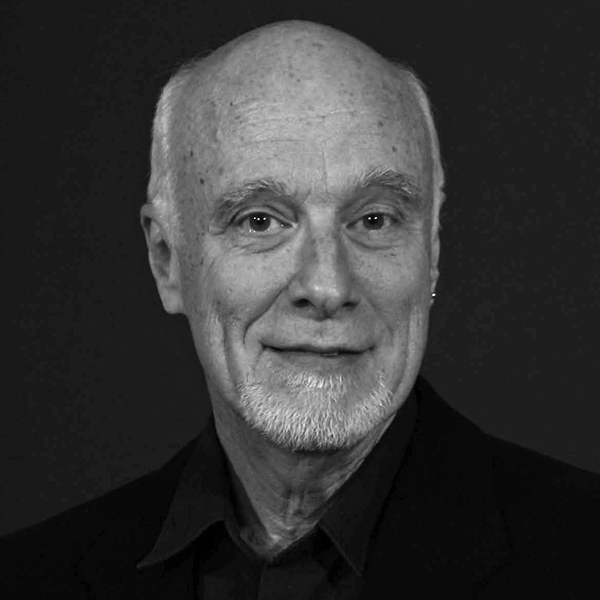
Endless Nocturne
David Evan Jones
Endless Nocturne suggests a mood that lasts much longer than the five manic nights of its creation and the sixty seconds of its actual duration.
After serving as Composer-in-Residence at York University (England) in 1980-81, Jones joined the faculty at Dartmouth College, New Hampshire i before becoming professor of music at University of California, Santa Cruz. Jones has composed in residence at IRCAM in Paris, Elektronmusikstudion (EMS) in Stockholm, and at Bregman Electronic Music Studio at Dartmouth College where he co-founded, with Jon Appleton, the Dartmouth graduate program in Electro-Acoustic Music. Jones has written articles and created compositions that explore structural relationships between music and phonetics. These include compositions such as "Pashanti—The Nine Billion Names of God", "Scritto", "Still Life in Wood and Metal", "Still Life Dancing", and the five pieces featured on Centaur Records CRC3500 entitled "News from Afar". He has also written libretti and music for two chamber operas. Bardos, the most prominent of these, had its professional premier in 2004 in Hoam Hall, Seoul, Korea. Jones also composes for Korean instruments. Most notably, his "Dreams of Falling", a composition for the Creative Orchestra of Korea’s National Gugak Center, received a half dozen performances in the United States and Seoul over the course of four years. Most of Jones' scores are available through American Composers Alliance
-
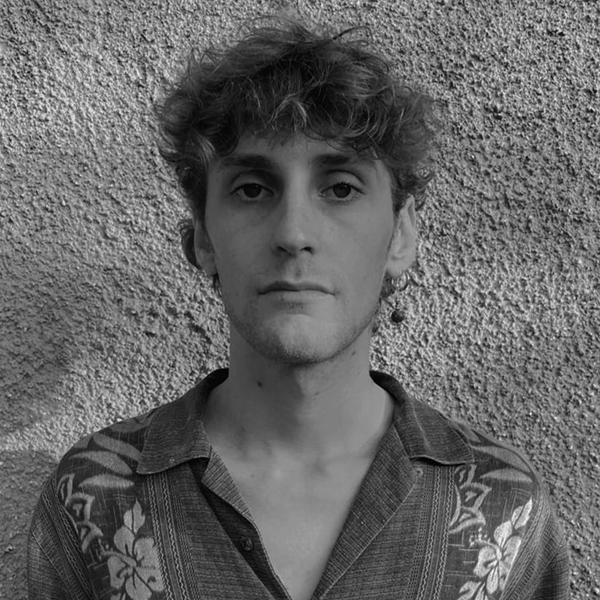
TELI
Marco Sebastianelli
TELI – piece for flute and fixed media. This composition explores the percussive qualities of the flute, utilizing various slap techniques achieved through different consonant articulations. It gradually integrates the performer's vocal expressions, culminating in a polyphony between voice and flute. The fixed media material is entirely derived from flute recordings, manipulated and processed using a digital audio workstation (DAW).
Marco Sebastianelli, Italian composer and pianist, a student of Andrea Portera, collaborates with Arsienti Di Re, an Italian flutist.
-
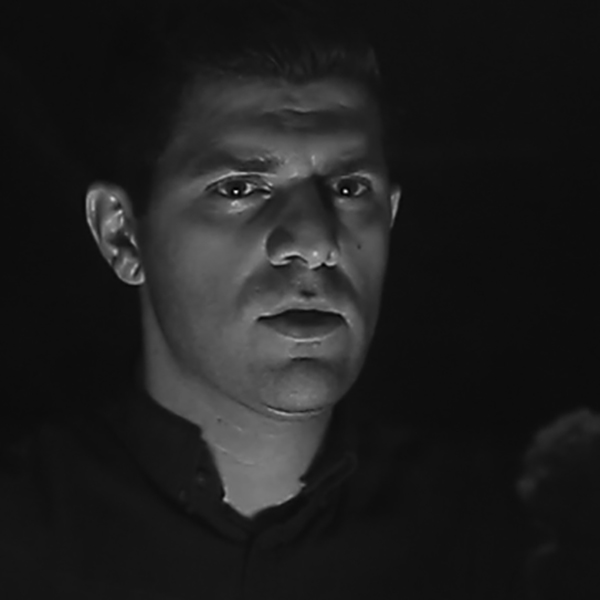
"ESHAREH"(For Flute and Fixed media)
Soheil Shirangi
"ESHAREH"(For Flute and Fixed media): "ESHAREH" Which means a passing reference to one of the diaries, I tried for narrating this...
Graduate of Tehran Conservatory. Second Person Tehran International Electronic Music Festival Award(2017).Candidate best composers Thirty-third Fajr festival(2018). Earning a diploma of the III International Contest of Choral Composing named after AD Kastalsky(2018). Scholarship holder at the Hamburg Media Festival(2019).Earning a diploma of the third person of the Orginsky International Composing Competition(for orchestra) in Belarus(2020),- 2022 The winner of the second place of the composition of the CBU University scholarship for writing the work of Samat(Duet For Violin and Cello). Among his other works can be mentioned To compose several theaters and short films. His works have also been performed in countries such as Iran, Greece, Italy, Brazil, Argentina, Germany, Romania and United States.
-
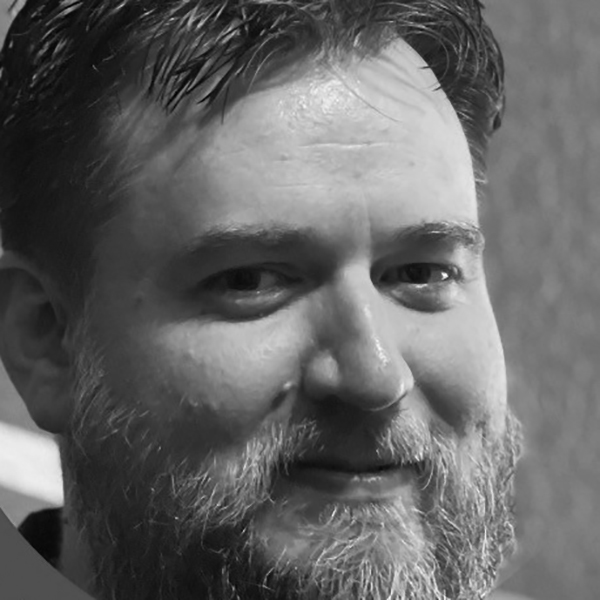
Material Fold
Benjamin Shirey
Material Fold explores delicate layers of sound, blending the live flute with an evolving fixed media landscape. Composed for Lisa Bost-Sandberg, the piece invites the listener into a space where textures unfold and intertwine, revealing subtle connections hidden within silence and sound.
Benjamin Shirey is a native Texan composer and artist who earned his bachelor's and master's degrees in Composition from the University of North Texas (UNT), where he studied under renowned mentors Panayiotis Kokoras, Jon Nelson, David Stout, Cindy McTee, and Marco Buongiorno Nardelli. His work spans experimental opera and film to electro-acoustic music, exploring themes such as acoustic phenomenology, ontology, artificial life, and immersive systems. Now pursuing a Ph.D. in Composition at UNT, Shirey's current research focuses on immersive systems, intermedia, and artificial intelligence, using these to uncover new dimensions in music, sound art, and the dynamic intersections of technology and the arts.
-
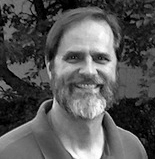
In Memoria di Linda Garzoli Cardosi
Rodney Waschka II
"Linda" Garzoli Cardosi, 1892-1919, the composer's great-grandmother, was born Teodelinda Garzoli in Barga, Italy. In 1911, in Memphis, Tennessee, she married Sabino Cardosi, the owner of a small grocery store, who had also been born in Barga. Linda was 18 and her husband 28. She gave birth to three sons, Evo, Guido, (the composer's grandfather) and Enrico. She died from the Spanish Flu at the age of 26. The youngest son, Enrico, died in 1925 of tetanus after stepping on a nail. He was seven years old. Sabino Cardosi did not remarry and died in 1928 at the age of 45. His remaining sons, Evo and Guido, were placed in an orphanage. This short piece is a simple remembrance. A striking photograph of Linda Garzoli Cardosi can be seen at the findagrave.com website by searching for Teodelinda Cardosi.
Rodney Waschka II is probably best known for his algorithmic compositions and his unusual operas such as Saint Ambrose and Sappho’s Breath. His music has been called “astonishing” and “strikingly charismatic” by Paris Transatlantic Magazine, “a milestone in the repertoire” by Computer Music Journal, “fluent and entertaining” by Musical Opinion of London, and “oddly moving” by Journal Seamus. Waschka’s music is regularly performed and broadcast throughout the world. Over two-dozen recordings of his compositions and performances appear on record labels based in the USA, Canada, Portugal, England, Poland, and Australia. Waschka studied at Brooklyn College, The Royal Conservatory of The Netherlands, and earned his doctorate at the University of North Texas. His mentors include Larry Austin, Robert Ashley, Paul Berg, Clarence Barlow, Konrad Boehmer, Thomas Clark, Charles Dodge, and George Lewis. Dr. Waschka is Director and Professor of Arts Studies at North Carolina State University. (waschka.info)
-
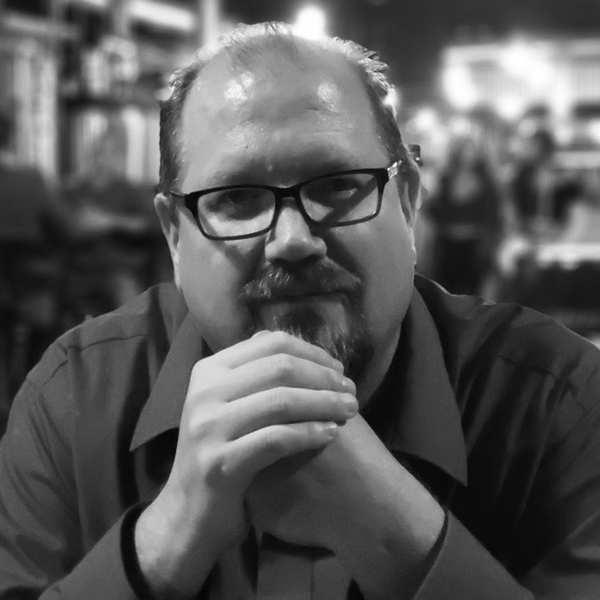
Wheel About
Michael Wittgraf
Wheel About, composed in 2024 for flute and stereo fixed media, is a short audio impression of the turning, pivoting, and whirling motions associated with changing direction. Flute sounds twirl their way through the air, moving here and there in a constant swirl of echoes, reverberations, and notes. By the end, sounds leave the air in a myriad of directions to continue their dance at another time and place. Turning is dedicated to Lisa Bost-Sandberg.
Michael Wittgraf is an electronic music composer whose recent work explores live manipulation of video and audio. His music has been performed in North America, Europe, Asia, South America, and Australia, and appears on the Eroica, New Ariel, SEAMUS, Navona, and Ravello labels. He has awards, commissions, and recognition from ASCAP, Modern Chamber Players, National Symphony Orchestra, Tempus Fugit, Louisiana State University, University of Minnesota, University of North Dakota, Florida State University, PiKappa Lambda, Zeitgeist, Chiara String Quartet, Bush Foundation, North Dakota Council on the Arts, and more. Mike is a multi-instrumentalist, having performed with the Greater Grand Forks Symphony Orchestra on bassoon, in a number of rock-and-roll bands on keyboards, saxophone, and electric bass, and as a solo and collaborative performer on computer. He holds the title of Chester Fritz Distinguished Professor at the University of North Dakota, where his teaching specialties are music technology, composition, theory, and bassoon.
-
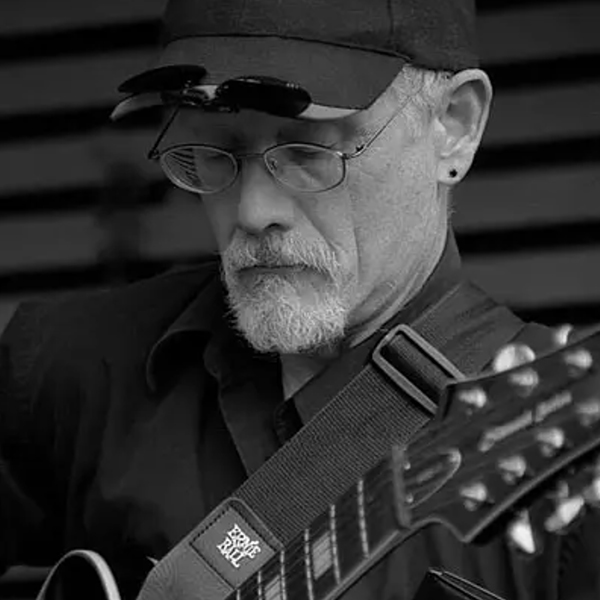
Iridescent Shadows for Flute and 'Tape'
RD Wraggett
This short piece for Flute and 'Tape' endeavours to evoke the scene, likely at night, when shadows appear iridescent like strands and patches of glowing shapes dancing across the earth.
rd wraggett educated at Royal Conservatory of Music and University of Toronto. Freelance composer, educator and Jazz guitarist.)
-
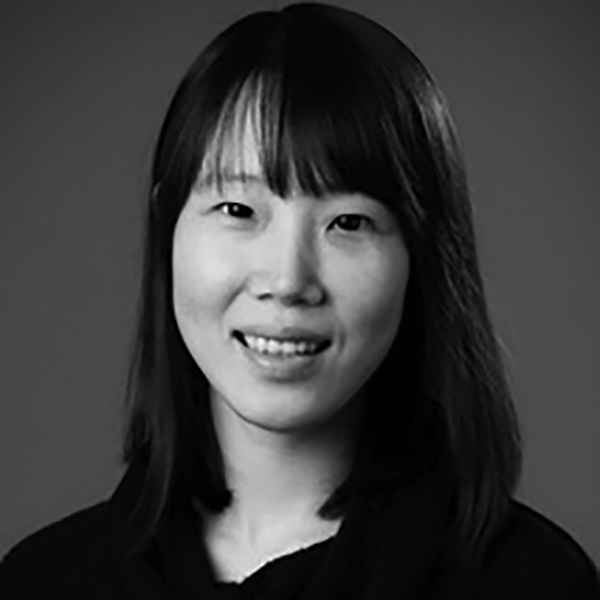
Birdsongs in a Ravine
Xu Zheng
"Birdsongs in a Ravine" was composed as a one-minute piece for the 2025 Electronic Music Midwest (EMM) festival, written for flutist Lisa Bost-Sandberg and fixed media. The piece draw inspiration from a Tang Dynasty poem of the same title by Wang Wei, evoking the serene soundscape of a spring ravine through live flute, alongside pre-recorded birdsongs and recited poetry. Through the interplay of live music, nature sound, and human voice, I hope to create a harmony among these three essential languages.
Xu Zheng is a Chinese composer based in Kansas City, MO. Her music weaves flowing narratives that delve into the inner depths of the subconscious, often inspired by her rich Chinese literary heritage. She explores a wide range of the sonic possibilities across both acoustic and electronic mediums, including music programming. She earned her Master of Music in Composition from the University of Missouri-Kansas City, where she studied with Chen Yi, Zhou Long, Paul Rudy, and Yotam Haber.